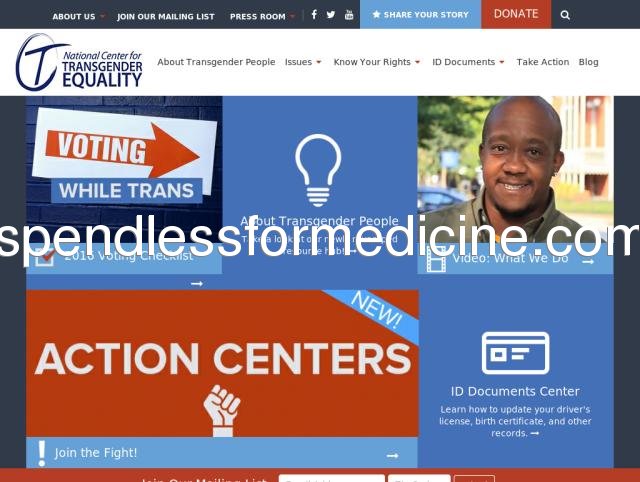www.transequality.org Review:
National Center for Transgender Equality - The National Center for Transgender Equality is the nation’s leading social justice advocacy organization winning life-saving change for transgender people.

Country: 104.239.201.53, North America, US
City: -98.3987 Texas, United States
This is a small, lightweight, reasonably priced digital camcorder. It's suitable for amateur or professional video recording, and performs adequately for making home movies. it's actually a nice piece of equipment - with some good specifications.
this is the second product I have bought from Vinalta. Let me start with packaging and size. it is packaged and bottle looks like a very high end dept store serum but probably 10X the amount you would get from them. I had tried their Vitamin C and was highly impressed so I decided to try this. Goes on lightly. a drop goes on a long ways and does not leave any stickiness or weight. this is definitely a perfect addition to my daily regiment.
These are absolute amazing products, one stop shopping for men. I love them and there products. If you get a chance watch their videos very educational, I've learned so much. I was doing research and had put together a natural combination of testosterone building supplements but I had misses some very important ingredients. I'm so happy to have done my research and known when I found these guys that they knew way more than me, and I was on the right track. Thank you for the wonderful products...and saving me money. My concoction of products was running around 300 dollars a month, and I missed some important ingredients. Long winded sorry ,thanks guys !!
I have tried various products and bought this based on Good Housekeeping's recommendation. I have seen no difference and I don't like how it feels on my skin. I was hoping to find a reasonably priced product but I will probably go back to Topix Replenix CF.
after I down loaded and tried to actually use the software I get notice that I have to pay to register! and if you don't it freezes up and the use is limited. you have a 30 day free trial and it cost $35 to register or pay $55 if you wait too long. What gives. When you buy something it should be yours from the get go. so now im out $35 for a limited use software unless I give more money. I will not buy from this publisher again.
I know there are a lot of cases that say they do this and that...i know you may be questioning the price but i consider its priced at the product range, 3 stars because the product arrive with a dent on the case frame, it hasn't represented an issue as for the case work ability but as for aesthetics it just doesn't look good for something to have dent on it from where it came from. :-(